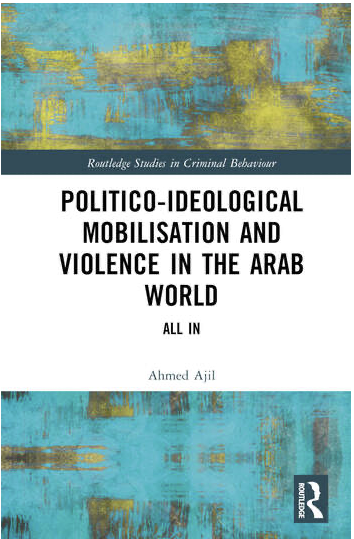This book presents a study of politico-ideological mobilisation and violence by focusing on the life stories, trajectories and narratives of individuals who mobilised for causes and conflicts in the Arab World. It provides a greater understanding of the biographical, sociological, political and historic factors pertinent for their radicalisation processes.
What makes individuals identify with suffering and injustice, often of others and elsewhere? Why do individuals feel the need to stand up in the first place and how does violent action become a justifiable or necessary course of action? Why and how do they disengage from violence? This book, based on interviews conducted in Lebanon, Switzerland, and Canada, answers these questions. It presents new theoretical insights about politico-ideological mobilisation and violence. By focusing on grievances and grounding analysis in the empirical reality as it is shared and narratively constructed by those who are at the heart of the phenomenon, it moves beyond the moralistic and politicised debates that characterise the field. Interviewees include non-violent and violent engagement for causes and conflicts related to the Arab World, such as sympathisers or members of groups and causes from a variety of ideological orientations, including Shiite militias, Salafi-jihadist groups, radical left-wing groups, Palestine-specific, Kurdish groups, and others such as right-wing or unspecified affiliations. By choosing individuals with different forms of political engagement, both non-violent and violent, and different ideological orientations, it helps readers to get a better grasp of how similar grievances may lead to different outcomes. In focusing on three markedly different geopolitical contexts, the book also provides a crosscontextual understanding of mobilisation for political and violent action. The interviewees also include experts and peripheral actors such as professionals, researchers, policymakers, friends, or family members. Their perspectives complement and enrich some of the findings by providing external yet in-depth ‘expert knowledge’.
Politico-ideological Mobilisation and Violence in the Arab World will be of great interest to criminologists, political scientists, sociologists, and other scholars interested in the study of terrorism, radicalisation and extremism. It will also appeal to journalists, policymakers, practitioners working in the field.
Reviews
“A ground-breaking grievances-based analysis of engagement into extremist violence. Based on a fascinating field research, Dr. Ahmed Ajil sheds new light on the motives that drive individuals towards violent actions. A must-read for all scholars and students interested in political violence.”
–Professor Aurélie Campana, Department of Political Science, Université Laval
“If the discipline of terrorism studies is to be redeemed from the propaganda and ineptitude that has plagued it since its inception, then works such as Ahmed Ajil’s will be essential. All in is sure to be a landmark text in the development of a richer and less biased account of political mobilization and violence in Arab contexts.”
– Professor Arun Kundnani, New York Univerity
“A rich, clear-eyed, and thought-provoking text which makes a significant contribution to our understanding of political violence, its anchors and its manifestations. A timely book, of use to both the scholar and the policy-maker.”
– Professor Mohammad-Mahmoud Ould Mohamedou, Geneva Graduate Institute
The book was made available Open Access by the Swiss National Science Foundation.

